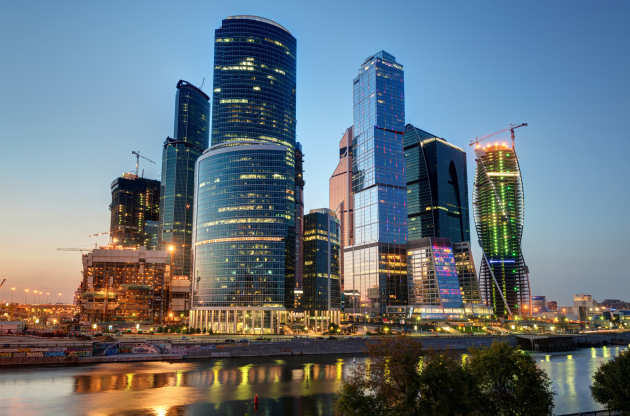Module details
- Offered to 2nd, 3rd and 4th Years
- Monday or Thursday 16.00-18.00 (depending on year of study)
- Planned delivery: On campus (South Kensington)
- Two-term module, worth 7.5 ECTS
- Available to eligible students as part of I-Explore
- Extra Credit, or Degree Credit where your department allows
A communicative module for students with some prior knowledge of the Russian language and the culture of Russia.
This module aims to:
- Help you develop, revise and consolidate all the language skills, i.e. reading, writing, listening and speaking, equivalent to the A2 level on the Common European Framework of Reference (CEFR)
- Extend your knowledge of grammatical structures and vocabulary and equip you with the necessary tools for independent language learning
- Offer you an insight into some aspects of the culture and daily life in countries where Russian is widely spoken
- Prepare you to progress towards higher language levels
To be eligible for this module, you need to have done one of the following:
- Successfully completed Russian Level 1
- Gained a Russian GCSE qualification
- Have already achieved the equivalent level by other means
Please note: The information on this module description is indicative. The module may undergo minor modifications before the start of next academic year.
Information blocks
On successful completion of this module, you will be able to:
- Respond to and produce simple spoken language in familiar contexts, applying your knowledge of A2 grammar and vocabulary
- Respond to and produce simple written texts applying your knowledge of A2 grammar and vocabulary
- Demonstrate intercultural awareness in the handling of everyday social interactions in Russian and engage with a basic range of digital language learning tools to support your production
In this module, you will cover the following linguistic structures:
- Dative and instrumental cases
- Signifiers and plurals
- Impersonal constructions
- Accusative and prepositional plurals
- Verbs of motion
- Telling the time, months, dates and ages
- Relative clauses
- Comparative adjectives and adverbs
- Verbs taking the instrumental
These linguistic structures will be applied to the following topics:
- People’s physical characteristics and their personality traits
- Health and sickness
- Interests and hobbies
- Descriptions of cities and towns
- Travelling by car, train or plane
- Vacation plans
- Sightseeing while on holiday
In line with MFL communicative and active learning methodology, in-class activities cover all four skills (reading, writing, listening and speaking) and include: pair work and group work (dialogue practice, information gap exercises, discussion and collection of key terms/ideas followed by report to plenum), individual tasks (face-to-face and online); discovery and formulation of rules; work with texts, audio and video material to develop learning and communicative skills. Homework and coursework tasks give you the opportunity to revise and consolidate knowledge and skills and to develop awareness of how to use language-learning tools independently. This approach not only ensures you engage with a wide range of tasks, but also supports different learning styles.
All pieces of coursework are marked and returned within two weeks. Marking criteria and revision guidance (how-to guides) are included as needed with each coursework to ensure you are supported to complete your work and aware of assessment expectations. Detailed feedback is provided for each individual section of the coursework, giving the correct answer(s) along with suggestions for improvement. In addition to the number of points out of a maximum total, an overall percentage grade is given. Generic feedback on each individual piece of coursework is also provided in class.
The module includes formative as well as summative assessment. Homework tasks (theory revision, reading, writing, listening, etc) are set every week on the VLE, following a flipped-classroom approach to ensure face-to-face time is devoted to interactional learning and communicative skills acquisition. Independent study and support materials/guidance are also provided, so that you can reinforce topics covered at your own pace. Feedback is given for tasks submitted, to ensure you are supported to complete your work and aware of assessment expectations. Summative assessment consists of two pieces of coursework (one per term), two 1-hour timed assessments (tests scheduled at the end of autumn term and at the end of spring term), and one practical, i.e. oral examination (at the end of spring term or at the beginning of the summer term). Coursework and written/oral examinations all contribute to the final grade.
- Coursework (15%): Grammar and writing task (80 words).
- Examination (15%): 1 hour in-class test, including reading comprehension, grammar and writing task (100 words).
- Coursework (20%): Reading and writing (100 words).
- Examination (25%): 1 hour in-class test, including listening comprehension (approx. 5-7 minutes of audio) and grammar.
- Practical (25%): Oral exam: 12-15 minutes (role play and general conversation).
- 7.5 ECTS points awarded on successful completion of the module.
- Available to take for credit towards your degree where your department allows. Also available for extra-credit.
- You must be prepared to attend all classes and and undertake approximately 3 hours of private study each week in addition to the assessment.
Coursebook: Anna S. Kudyma, Frank S. Miller, Olga E. Kagan, Beginner’s Russian with Interactive Online Workbook. A Basic Russian Course (Hippocrene Books, Inc., New York, 2010, 5th printing, 2015), Chapters 12-24. ISBN-13: 978-0-7818-1251-1 (pbk.).
Additional material: The University of Leeds video course V Moskvu? V Moskvu! (Leeds/Moscow, 1999).
Russian advice
Ms Alena Boykova
a.boykova@imperial.ac.uk
